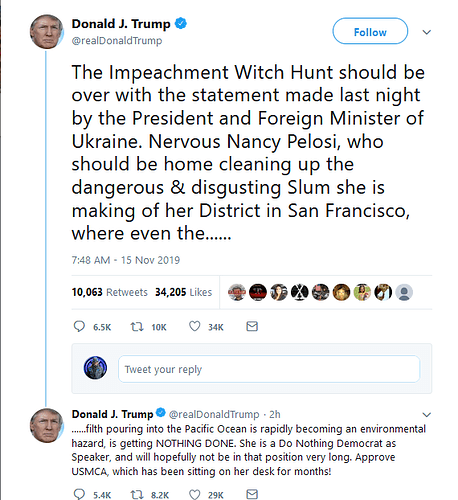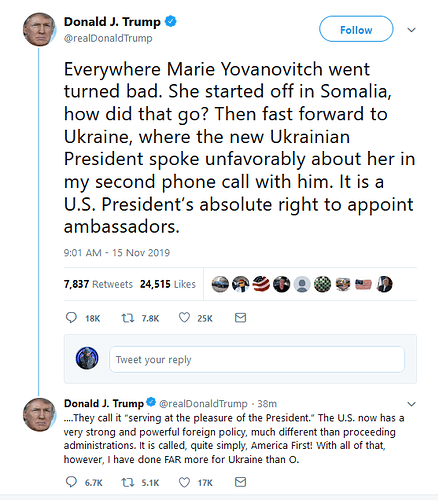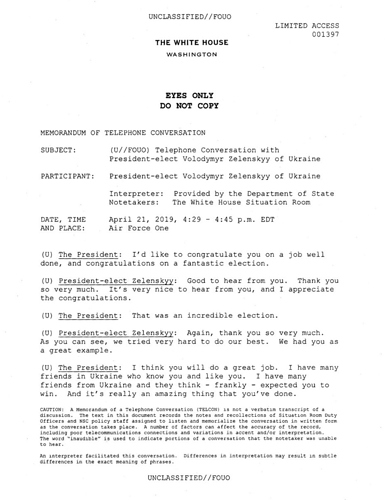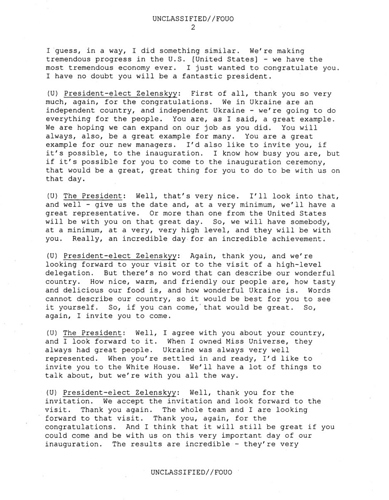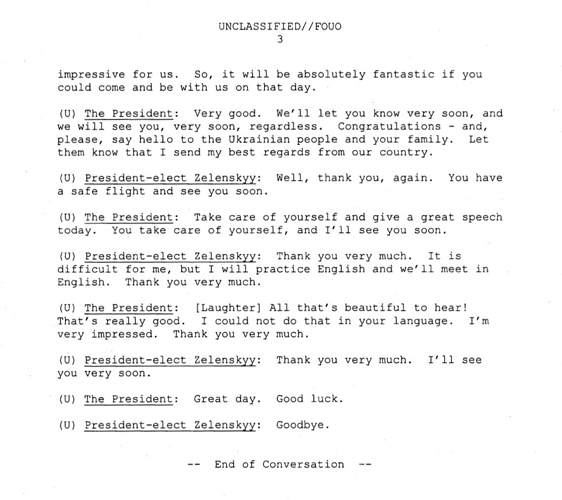Atty General Barr tonight addressed the conservative group, The Federalist Society (the ones who chose all the judges) and describes what he thinks is wrong with what the Dems are doing in terms of impeachment. He is outraged at the lengths that Dems are going to shred norms.
And Barr does believe in that the President has wide powers…so he defends him as such.
Side note: Just as the Impeachment hearings with Yonavitch were taking place today, Barr, Cipillone, and T were in a heated discussion inside the oval office. Would like to have been a fly on the wall. Perhaps what went down ignited T’s temper more and he rage-tweeted during the hearings.
Or perhaps it is the same loose screw in T’s head that keeps getting knocked around and forcing his twitter account to say those horrific things.
“In waging a scorched-earth, no-holds-barred war against this administration, it is the left that is engaged in shredding norms and undermining the rule of law,” Mr. Barr said.
He noted that opponents labeled themselves “the resistance” immediately after Mr. Trump was elected and accused them of “using every tool and maneuver to sabotage the functioning of the executive branch and his administration.
“Resistance is the language used to describe insurgency against rule imposed by an occupying military power,” Mr. Barr said. He added that it connotes that the government is not legitimate. “This is a very dangerous and indeed incendiary notion.”
…
In his address, Mr. Barr suggested the president has acted within his powers and that his opponents were willing to bend the law to stop him.
Mr. Barr is known as an executive power maximalist and a believer in the unitary executive theory, which posits that the Constitution imbues the presidency with broad powers that are subject to relatively little oversight.
He has argued, for example, that Congress cannot make it a crime for a president to exercise executive powers corruptly; and that presidents have authority over law enforcement investigations even when investigators are scrutinizing their activity.
On Friday, Mr. Barr hit back against criticisms of his view of executive authority.
“Some of you may recall when I was up for confirmation, all these Democratic senators saying how concerned they were about my adherence to the unitary executive theory,” Mr. Barr said.
“This is not new and it’s not a theory,” Mr. Barr said, calling his viewpoint a straightforward description of the powers that the Constitution gives the president. “Whatever the executive power may be, those powers must be exercised under the president’s supervision,” he said.
Mr. Barr’s assessment was a “highly contestable — and in my view, seriously mistaken — reading of history,” said Peter M. Shane, a former Justice Department official and Ohio State University law professor who specializes in the separation of powers.
“He over-reads the vesting of executive power, ignores the limitations on executive power implicit in other clauses, and ignores evidence of what voters in favor of ratification would have expected from the text,” Mr. Shane said. “He is, indeed, a maximalist.”
